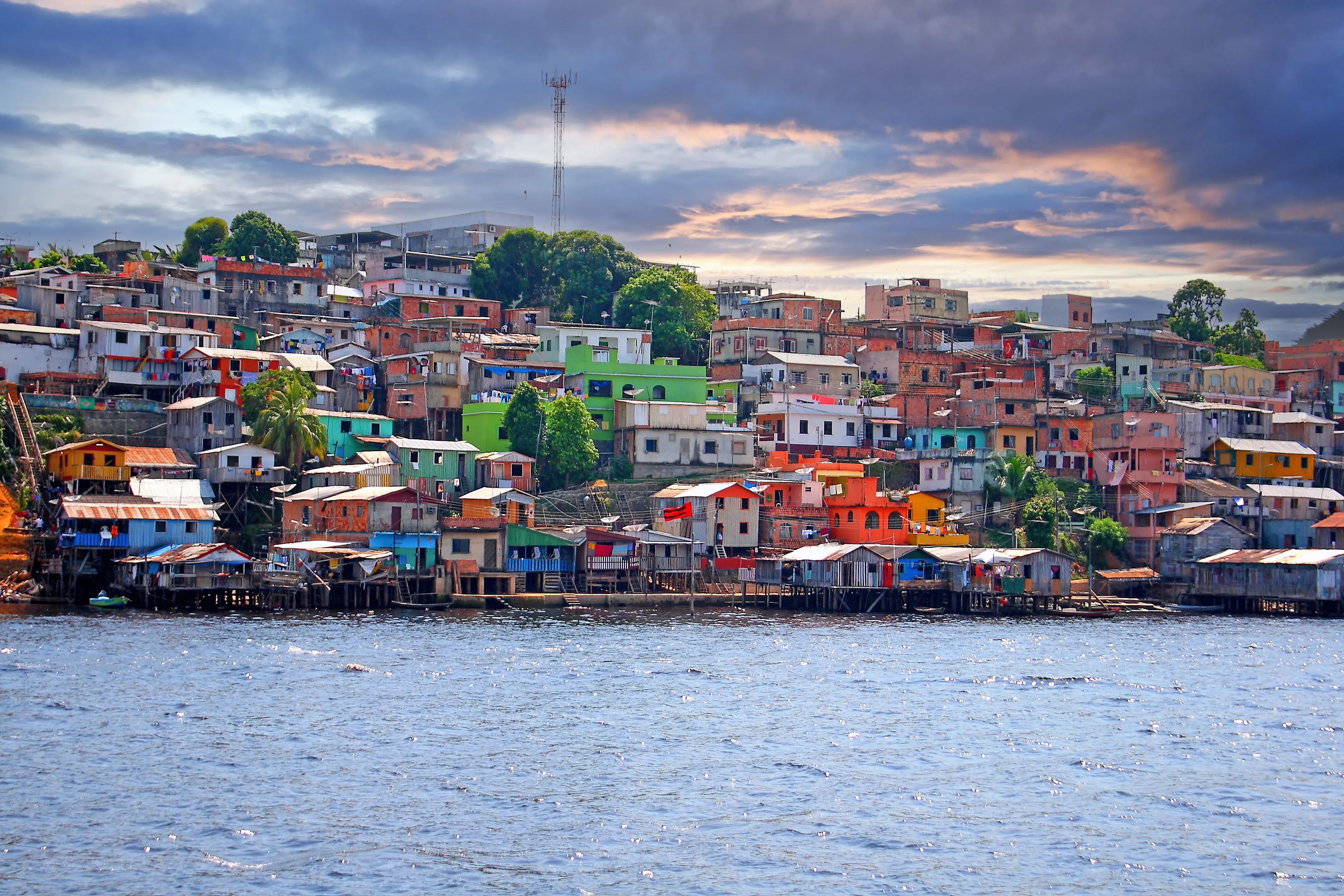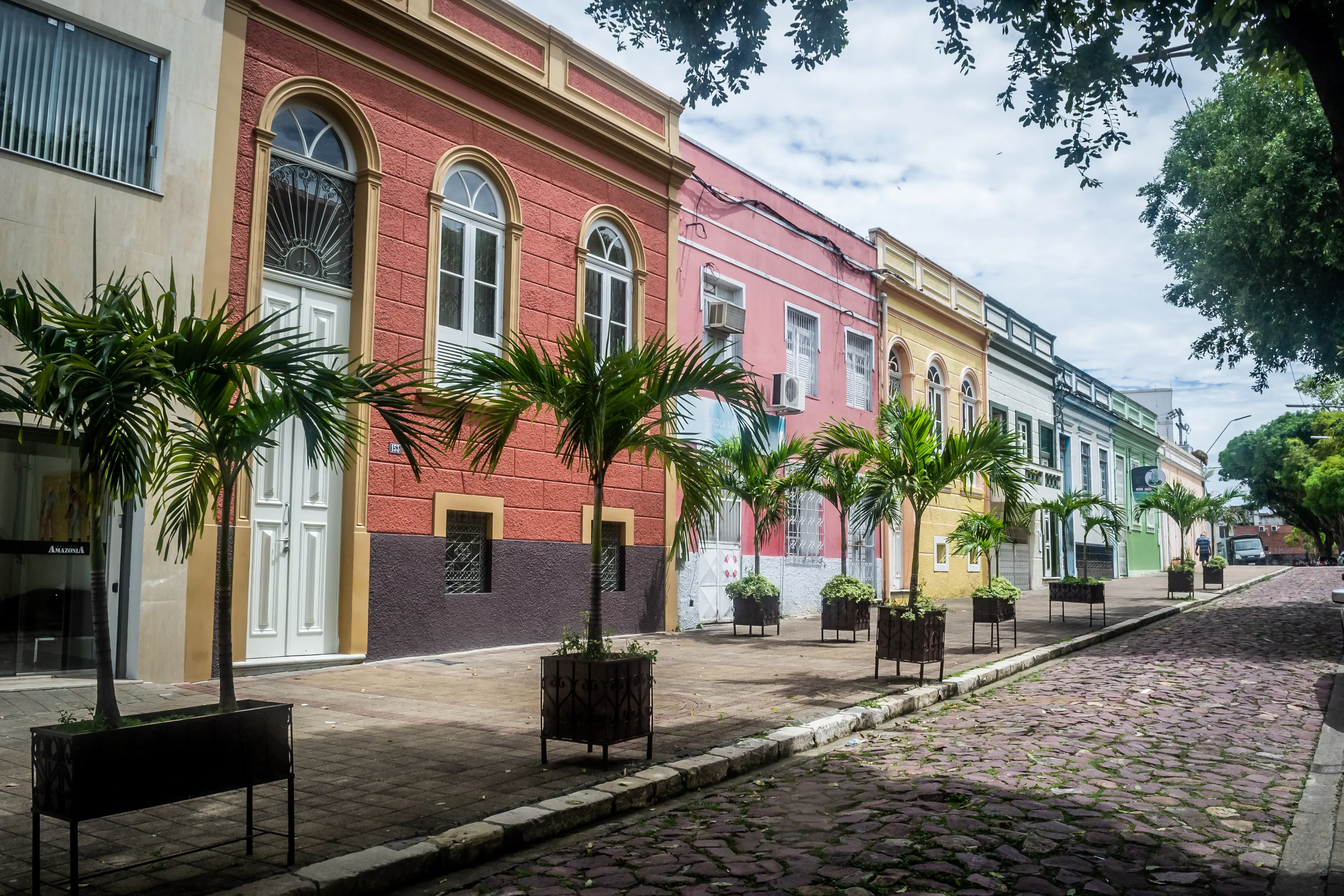3-Day Adventure Guide to Manaus, Brazil
Manaus, Brazil
3 days
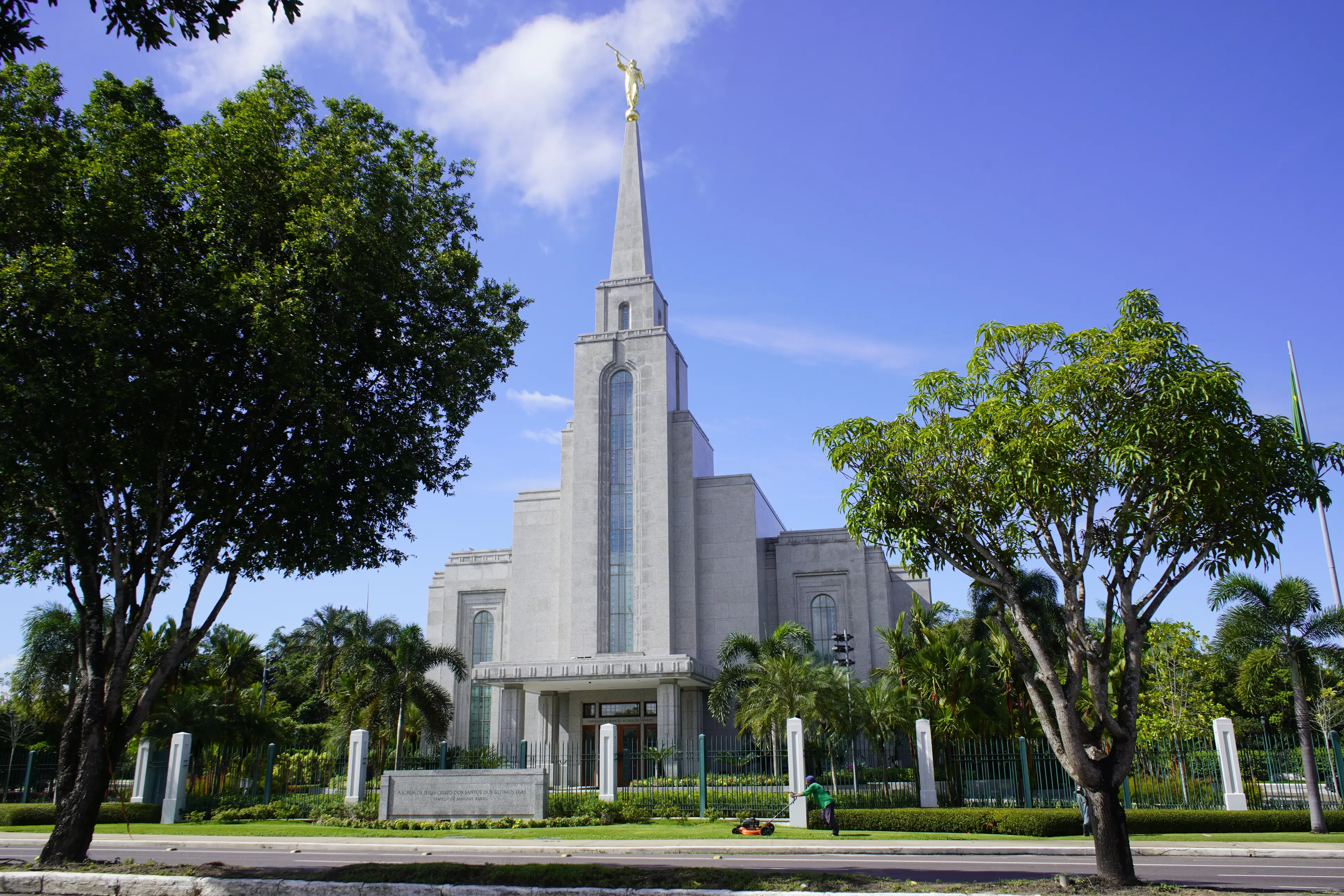
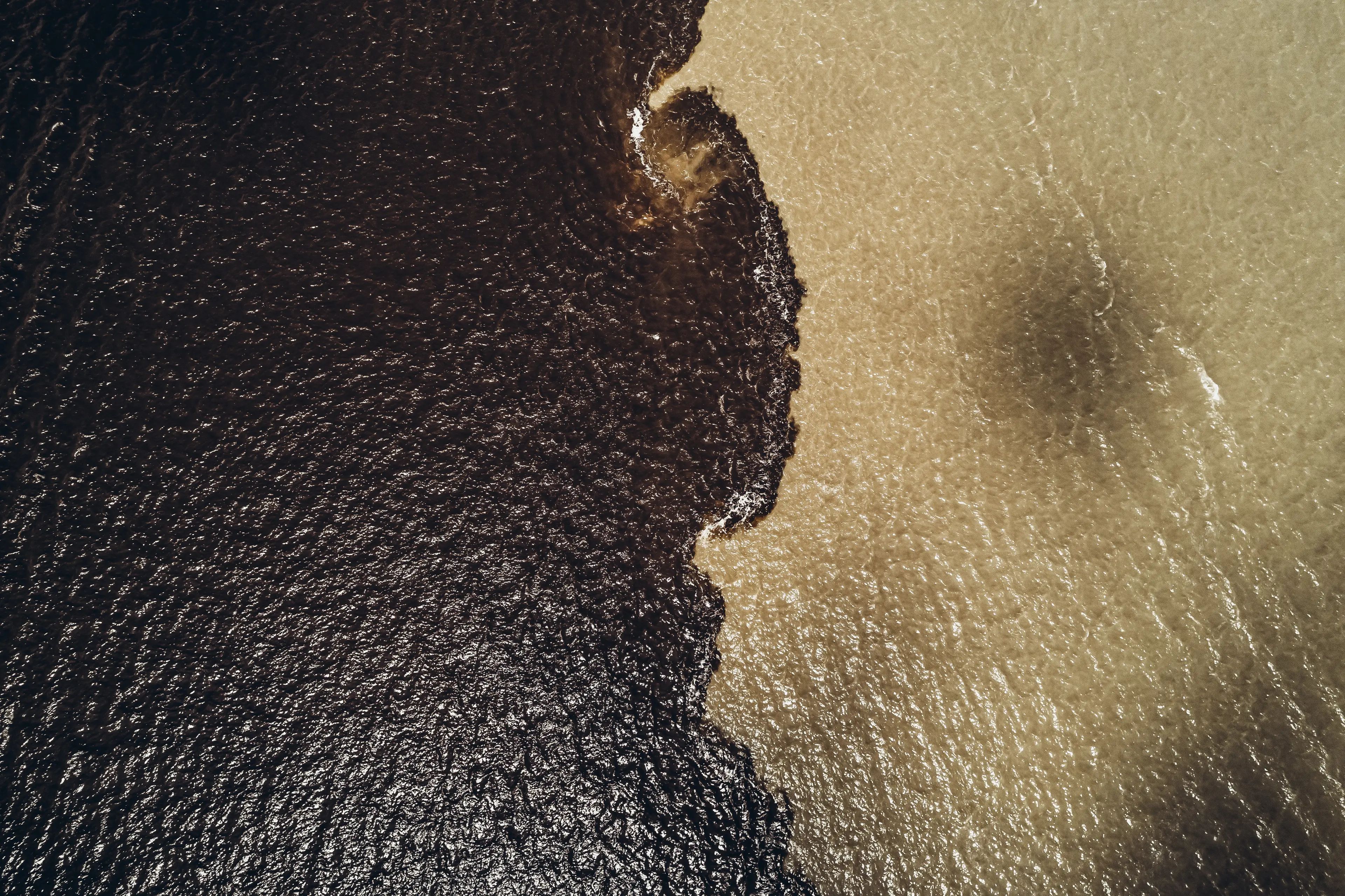
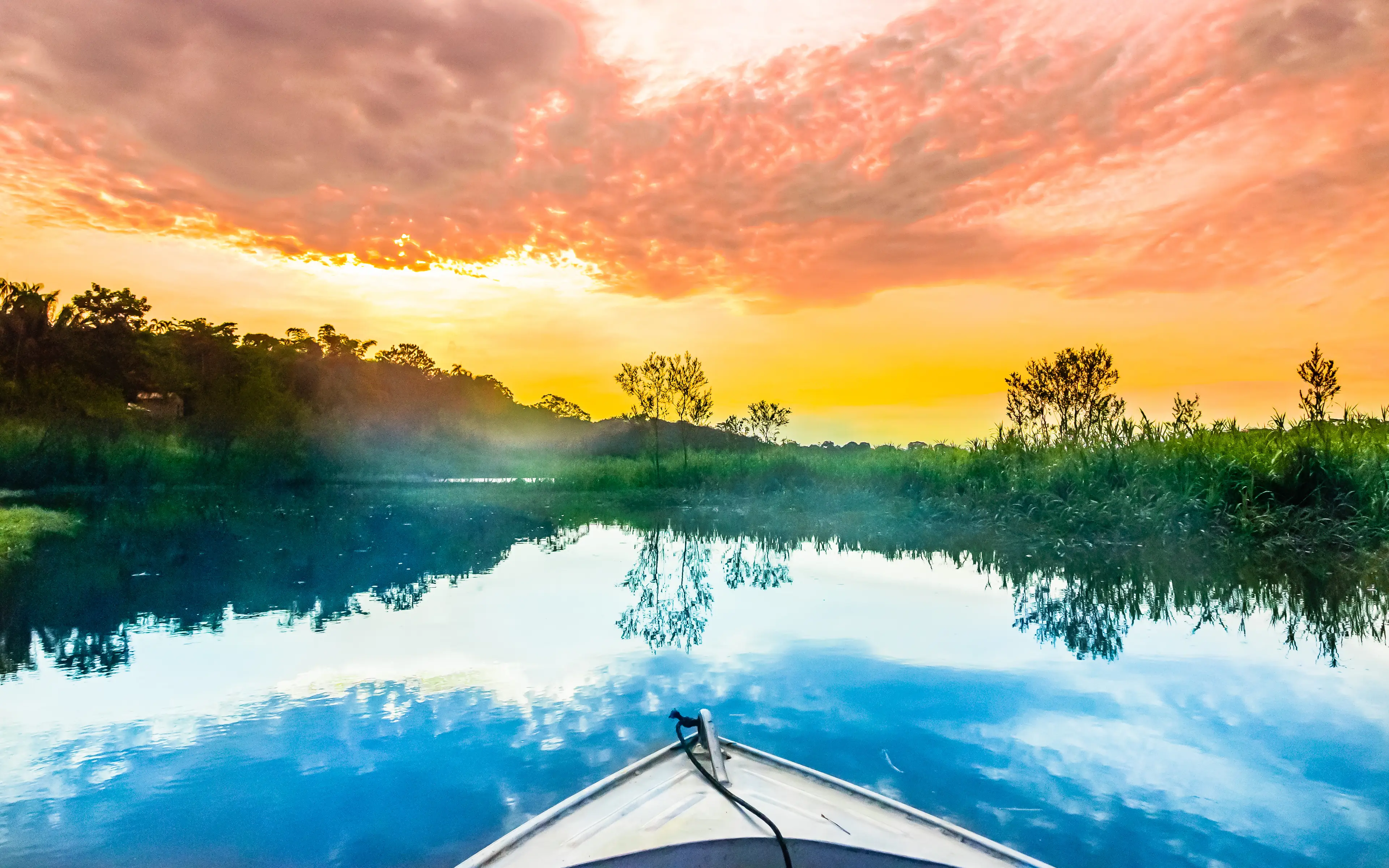
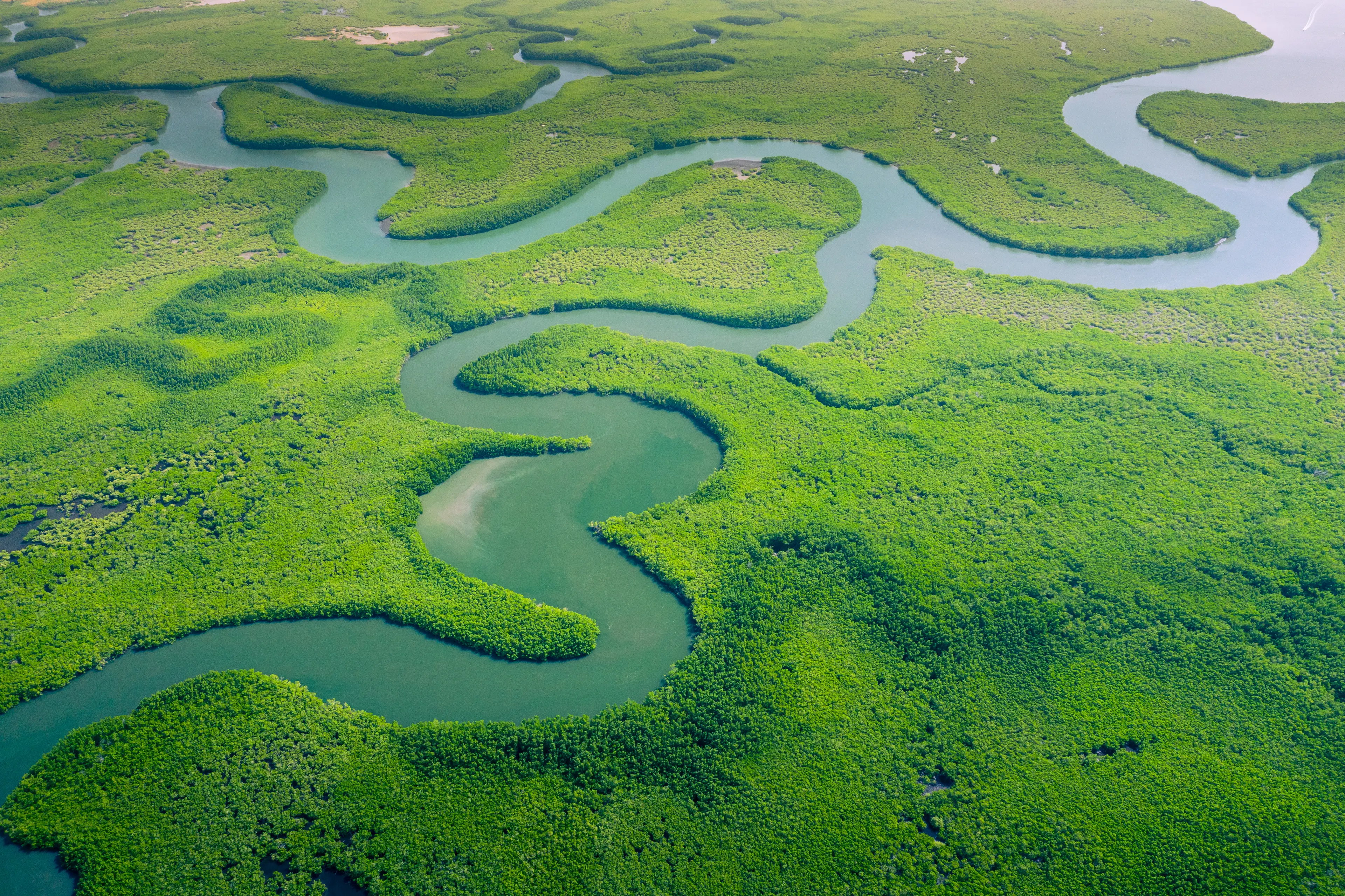
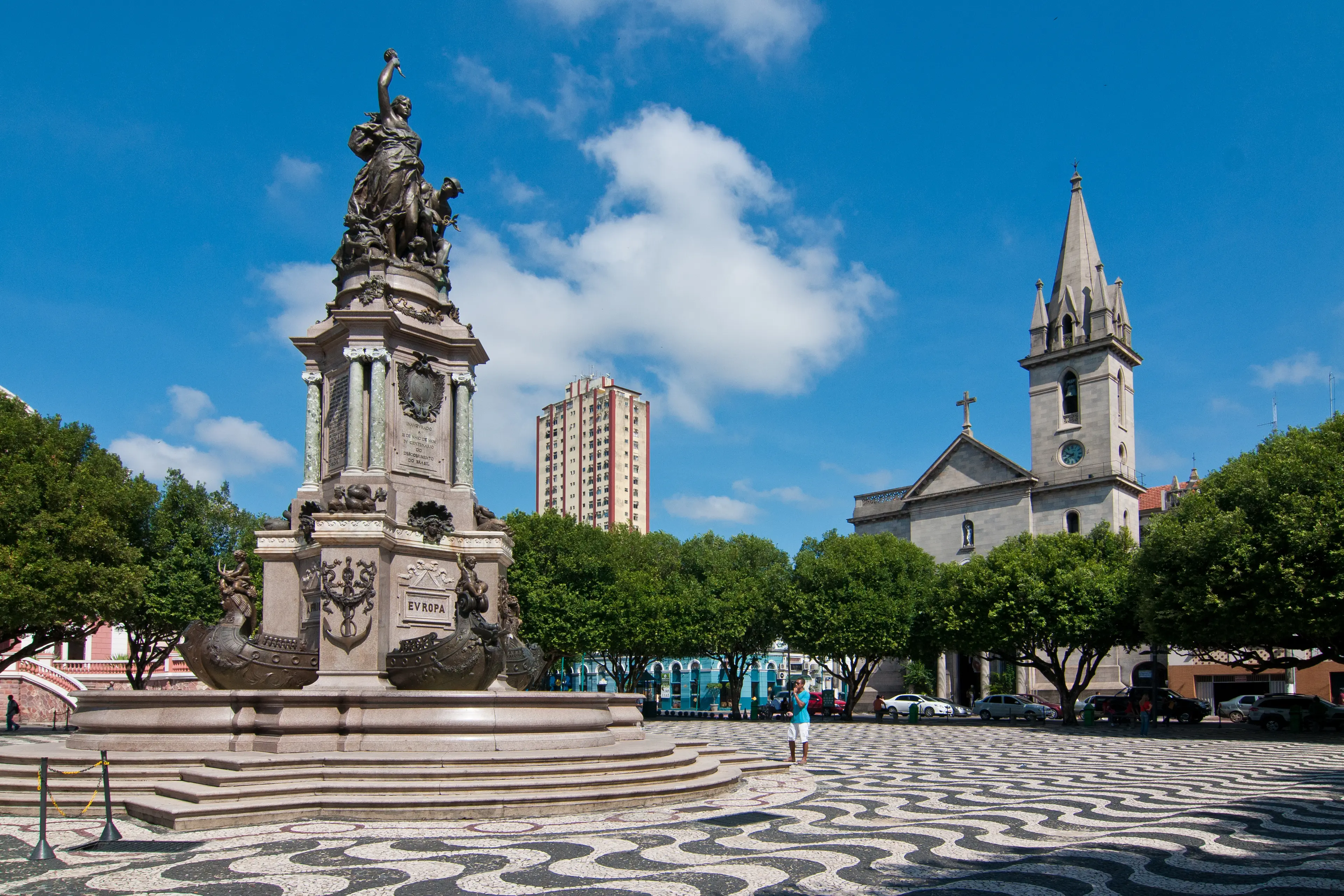
About Manaus, Brazil
Experience the heart of the Amazon in Manaus, Brazil. This vibrant city, nestled amidst the world's largest rainforest, offers a unique blend of urban life and natural wonders. Explore the historic city center with its iconic Amazon Theatre, or venture into the lush jungle for an unforgettable eco-adventure. Cruise along the Amazon River, witness the remarkable Meeting of the Waters, and encounter diverse wildlife. Visit indigenous communities for a glimpse into their rich culture and traditions. With a tropical monsoon climate, Manaus is a year-round destination, but the dry season (June to September) is ideal for jungle trekking. Whether you're a nature enthusiast, culture vulture, or adventure seeker, Manaus promises an extraordinary journey.
3-Day Itinerary
Day 2
Discovering Manaus' Landmarks and Botanical Garden
Morning
Visit the Manaus Opera House, an iconic landmark of the city. Take a guided tour to learn about its history and architecture.
Lunch
Have lunch at a local restaurant. Try 'Feijoada', a traditional Brazilian stew made with black beans and pork.
Afternoon
Spend the afternoon at the Adolpho Ducke Botanical Garden. Discover the diverse plant species and enjoy the peaceful surroundings.
Dinner
For dinner, try 'Açaí', a popular Brazilian dish made from açaí palm fruit. It's a healthy and delicious option.
Evening
In the evening, explore the vibrant Manaus Market. Shop for local crafts, spices, and fruits.
Day 3
Learning about Amazon's History and Night Tour of the River
Morning
Start your last day with a visit to the Museu do Seringal Vila Paraíso. Learn about the history of rubber production in the Amazon.
Lunch
Enjoy a local lunch featuring 'Pato no Tucupi', a traditional Amazonian dish made with duck and a sour sauce.
Afternoon
In the afternoon, visit the Palácio Rio Negro, a historic palace that now serves as a cultural center.
Dinner
Dine at a local restaurant and try 'Moqueca', a Brazilian fish stew. It's a perfect way to end your culinary journey in Manaus.
Evening
End your trip with a night tour of the Amazon River. Experience the unique nocturnal wildlife and the serene beauty of the river at night.
Attractions in Itinerary (9)

1Meeting of the Waters
A natural phenomenon where the Rio Negro and the Solimões River meet but do not mix due to differences in temperature, speed, and water density.

2Amazon River
The second longest river in the world, offering boat tours and opportunities to see diverse wildlife.

3Amazon Rainforest
The world's largest tropical rainforest, offering opportunities for wildlife viewing, jungle treks, and river cruises.

4Ponta Negra Beach
A popular beach on the banks of the Rio Negro, with a lively boardwalk area full of restaurants and bars.

5Manaus Opera House
An iconic opera house known as Teatro Amazonas, built in the Renaissance style during the rubber boom.

6Adolpho Ducke Botanical Garden
A vast botanical garden that houses a significant portion of the Amazon's plant and animal species.

7Manaus Market
A bustling market, also known as Mercado Adolpho Lisboa, offering a variety of local produce, fish, and Amazonian crafts.

8Museu do Seringal Vila Paraíso
Museu do Seringal Vila Paraíso offers a glimpse into the life of rubber tappers in the Amazon during the late 19th and early 20th centuries. The museum is located in a former rubber plantation and includes a replica of a rubber tapper's house, a chapel, a warehouse, and a latex extraction area. Visitors can learn about the process of rubber tapping and the history of the rubber boom in Brazil.

9Palácio Rio Negro
A historic palace that serves as a cultural center and museum, showcasing the history and art of the Amazon region.
Local Food and Drinks (12)

Tambaqui
A popular dish in the Amazon area, Tambaqui is a fish native to the Amazon River. It's often served grilled with a side of rice and salad.

Tacacá
Tacacá is a traditional soup from the Amazon region, made with jambu (a local herb), dried shrimps, yellow pepper and tucupi (a sauce made from wild manioc root). It's usually served in a gourd bowl and eaten with a straw.

Pato no Tucupi
Pato no Tucupi is a traditional dish of duck cooked in tucupi sauce, made from wild manioc root. It's often served with rice and jambu, a local herb that gives a tingling sensation in the mouth.

Maniçoba
Maniçoba is a traditional Amazonian stew made with leaves of the manioc plant, various meats, and served with rice. It's often compared to feijoada, but the preparation takes a week, making it a special dish in Manaus.

Vatapá
Vatapá is a creamy dish made from bread, shrimp, coconut milk, finely ground nuts and palm oil mashed into a creamy paste. It's a popular dish in Manaus and has African influences.

Açaí
Açaí is a fruit native to the Amazon and is often consumed in a bowl with granola, banana, and other fruits. In Manaus, it's common to eat açaí with fish or dried shrimp, reflecting the local culinary tradition.

Pirarucu
Pirarucu is a large freshwater fish native to the Amazon River. It's often grilled or fried and served with a side of rice and salad. The fish is known for its firm, white flesh and mild flavor.

Guaraná Antartica
Guaraná Antartica is a popular soft drink in Brazil made from the guaraná fruit, which is native to the Amazon. It's known for its refreshing taste and natural caffeine content.

Cupuaçu Drink
Cupuaçu is a tropical fruit native to the Amazon rainforest. The juice is popular in Manaus for its unique flavor, which is described as a mix of chocolate and pineapple.

Cachaça
Cachaça is a distilled spirit made from fermented sugarcane juice. It's the most popular distilled alcoholic beverage in Brazil and is often used to make caipirinha, a famous Brazilian cocktail.

Caipirinha
Caipirinha is Brazil's national cocktail, made with cachaça, sugar, and lime. It's a popular drink in Manaus, often enjoyed as a refreshing beverage in the tropical climate.

Moqueca
Moqueca is a traditional Brazilian fish stew, cooked slowly with tomatoes, onions, garlic, coriander and coconut milk. It's a popular dish in Manaus, showcasing the fresh fish from the Amazon River.
Best time to visit
The best time to visit Manaus, Brazil is during the dry season, which runs from June to September. During this time, the weather is more comfortable with less rainfall, making it easier to explore the Amazon Rainforest and the city's various attractions. However, if you're interested in seeing the Meeting of the Waters, a unique phenomenon where two rivers run side by side without mixing, it's more visible during the wet season, from December to May. But be prepared for heavy rainfall and high humidity during this period.
How to get around
Bus
Manaus has an extensive public bus system that can take you to most parts of the city. The buses are frequent and relatively reliable. However, they can be crowded during peak hours.
Taxi
Taxis are widely available in Manaus and can be hailed from the street, booked by phone, or picked up from taxi ranks located throughout the city. They are metered and provide a comfortable and convenient way to get around.
Ridesharing
Ridesharing services like Uber and 99 are available in Manaus. They can be a more affordable and convenient alternative to taxis. You can book a ride using the respective app on your smartphone.
Boat
Given Manaus's location at the confluence of two major rivers, boats are a common form of transport. You can take a boat to visit nearby riverine communities or to enjoy a tour of the Amazon River.
Bicycle
Manaus has a growing network of bicycle lanes and it's possible to rent bikes in several locations around the city. This can be a fun and eco-friendly way to explore the city, especially the parks and green spaces.
Foot
Many of the city's attractions are located within walking distance of each other, especially in the city center. Walking can be a pleasant way to explore Manaus, but be prepared for the hot and humid weather.
Car Rental
Renting a car can be a good option if you're planning to explore outside of Manaus. However, traffic can be heavy and parking can be difficult in the city center. It's recommended to have a good map or GPS.
Important information
CurrencyR$ BRL
Time zoneFederal District
Driving sideRight
Emergency phoneAmbulance: 192 or 193 ; Fire: 193; Police: 190
Drinking waterOpt for bottled water
Power sockets
Voltage220 V
Things to know about Manaus, Brazil as a first time visitor
1
Manaus is located in the heart of the Amazon Rainforest, so be prepared for a tropical climate with high humidity.
2
The official language is Portuguese, but English is not widely spoken. It would be helpful to learn a few basic Portuguese phrases.
3
The local currency is the Brazilian Real (BRL). Credit cards are widely accepted, but it's always a good idea to have some cash on hand.
4
Manaus is generally safe, but like any city, it has areas that are best avoided. Always be aware of your surroundings and keep your belongings secure.
5
Public transportation is available, but it may not be as reliable or extensive as in other major cities. Taxis and ride-sharing services are also available.
6
Manaus operates on Brasília time, which is 4 hours behind Coordinated Universal Time (UTC-4).
7
The city has a rich cultural history, with influences from indigenous tribes, Portuguese colonists, and African slaves. Respect for local customs and traditions is appreciated.
8
The cuisine in Manaus is unique, with many dishes featuring fish from the Amazon River and fruits from the rainforest. Be adventurous and try local specialties.
9
The tap water in Manaus is not safe to drink. Always drink bottled water and avoid ice in your drinks.
10
Mosquito-borne diseases like dengue fever and Zika virus are a risk in Manaus. Use insect repellent and wear long sleeves and pants, especially at dawn and dusk.
11
The weather is hot and humid year-round, with average temperatures ranging from 75°F to 91°F (24°C to 33°C).
12
Rain is common in Manaus, especially from December to May. Always carry an umbrella or raincoat.
13
Manaus has a vibrant nightlife, with many bars, clubs, and live music venues. However, it's advisable to avoid walking alone at night.
14
Healthcare facilities in Manaus are limited, especially for serious conditions. It's recommended to have travel insurance that covers medical evacuation.
15
Manaus has a unique dress code due to its tropical climate. Light, breathable clothing is recommended. Don't forget a hat and sunglasses for sun protection.
16
The voltage in Brazil is either 110 or 220 volts, depending on the region. Manaus uses 127 volts. Check your devices to ensure they can handle this voltage or bring a converter.
17
Tipping is not mandatory in Brazil, but it's customary to leave a 10% tip in restaurants if service charge is not included in the bill.
18
Manaus hosts the famous Carnival in February or March, which is a great time to visit. However, it's also the busiest and most expensive time.
19
The Amazon Rainforest is home to many unique and dangerous animals. If you plan to explore the rainforest, always go with a knowledgeable guide.
20
Manaus is a duty-free zone, which means you can buy imported goods without paying import taxes. However, there are limits on how much you can bring back to your home country.
Basic Portuguese to know as a first time visitor
English phrase | Native phrase | Pronunciation | When to use it |
|---|---|---|---|
Hello | Olá | Ola | Greeting someone |
Goodbye | Tchau | Chow | Leaving someone |
Please | Por favor | Pohr fah-vohr | Making a request |
Thank you | Obrigado | Ob-ree-gah-doh | Expressing gratitude |
Yes | Sim | Seem | Agreeing with someone |
No | Não | Nown | Disagreeing with someone |
Excuse me | Com licença | Kom lee-sen-sah | Getting someone's attention |
I'm sorry | Desculpe | Dess-kool-peh | Apologizing |
Do you speak English? | Você fala inglês? | Voh-seh fah-lah een-glesh? | Trying to communicate |
I don't understand | Eu não entendo | Eh-oo nown en-ten-doh | Having trouble understanding |
Where is the bathroom? | Onde é o banheiro? | Onde eh o ban-heh-roh? | Looking for the bathroom |
How much does it cost? | Quanto custa? | Kwan-toh coos-tah? | Asking for the price |
I would like... | Eu gostaria... | Eh-oo gohs-tah-ree-ah... | Making a request |
Help! | Socorro! | So-coh-roh! | In an emergency |
Call the police | Chame a polícia | Shah-meh ah po-lee-see-ah | In an emergency |
I need a doctor | Eu preciso de um médico | Eh-oo preh-see-zoh deh oom meh-dee-koh | In an emergency |
Can I use my credit card? | Posso usar meu cartão de crédito? | Poh-soh oo-sahr meh-oo car-taun deh creh-dee-toh? | Making a purchase |
Where can I find a taxi? | Onde posso encontrar um táxi? | Onde poh-soh en-kon-trar oom tah-xee? | Looking for transportation |
Can I have the menu, please? | Posso ver o cardápio, por favor? | Poh-soh vehr o car-dah-pee-oh, pohr fah-vohr? | At a restaurant |
Cheers! | Saúde! | Sah-oo-deh! | Making a toast |
Packing List
Clothing
Lightweight clothing
Underwear
Socks
Swimwear
Rain jacket
Comfortable walking shoes
Sandals
Hat for sun protection
Sunglasses
Toiletries
Travel-size shampoo
Travel-size conditioner
Travel-size body wash
Toothbrush
Toothpaste
Deodorant
Razor
Shaving cream
Sunscreen
Insect repellent
First-aid kit
Prescription medications
Hand sanitizer
Travel documents and essentials
Passport
Visa if required
Driver's license
Health insurance card
Travel insurance documents
Hotel and transportation reservation confirmations
Emergency contact information
Local currency
Credit and debit cards
Electronics and gadgets
Smartphone
Charger for smartphone
Power bank
Headphones
Camera
Charger for camera
Universal travel adapter
E-reader or books
Miscellaneous items
Travel pillow
Earplugs
Eye mask
Snacks
Water bottle
Travel guidebook
Maps
Notebook and pen
Plastic bags for dirty clothes
Umbrella
Binoculars for wildlife viewing
Weather Conditions
When planning a trip to Manaus, Brazil, it's important to consider the city's tropical monsoon climate. The weather here is typically hot and humid, with temperatures ranging from 79°F to 91°F (26°C to 33°C) throughout the year. The city experiences two main seasons: a wet season and a dry season. The wet season, from December to May, sees heavy rainfall, with February and March being the wettest months. If you're planning to visit during this time, be prepared for sudden downpours and pack waterproof clothing and shoes. The dry season, from June to November, is relatively less rainy. However, even during the dry season, occasional showers are common, so it's advisable to always carry a light rain jacket or umbrella. Despite the high humidity and rainfall, Manaus can be a great destination for nature lovers. The city is located in the heart of the Amazon rainforest, offering unique opportunities for jungle tours and wildlife spotting. However, due to the high humidity, it's recommended to stay hydrated and wear breathable, light-colored clothing. Also, it's important to note that Manaus can be very hot, especially during the dry season. Sunscreen, hats, and sunglasses are essential to protect yourself from the strong sun. Finally, remember that the weather can change quickly in Manaus. It's always a good idea to check the local weather forecast before planning your day's activities.
| Month | Hi / Lo (°C) | Weather Overview |
|---|---|---|
January | 31° / 23° | January is the wettest month in Manaus, with heavy rainfalls and high humidity. Despite the rain, temperatures remain high, making it a warm but wet time to visit. |
February | 31° / 23° | February continues the rainy season with high humidity and temperatures. It's a good time to visit if you don't mind the rain and enjoy the tropical climate. |
March | 31° / 23° | March is the end of the rainy season, with temperatures remaining high. The city is lush and green, making it a beautiful time to visit. |
April | 31° / 23° | April sees the start of the dry season, with less rainfall and high temperatures. It's a great time to explore the city and the surrounding Amazon rainforest. |
May | 31° / 23° | May is a dry month with less rainfall and high temperatures. It's a perfect time to visit the Amazon rainforest and enjoy outdoor activities. |
June | 31° / 23° | June is a dry and warm month, making it a popular time for tourists. The Amazon rainforest is lush and vibrant, offering plenty of opportunities for exploration. |
July | 31° / 23° | July is one of the driest months in Manaus, with high temperatures and low rainfall. It's a great time to visit for outdoor activities and exploring the city. |
August | 31° / 23° | August continues the dry season with high temperatures and low rainfall. It's a great time to visit the Amazon rainforest and enjoy the city's outdoor activities. |
September | 31° / 23° | September marks the end of the dry season, with temperatures remaining high. It's a good time to visit if you want to avoid the heavy rainfalls of the wet season. |
October | 31° / 23° | October is the start of the wet season, with increasing rainfall and high temperatures. Despite the rain, it's a warm time to visit and the city is lush and green. |
November | 31° / 23° | November continues the wet season with high humidity and temperatures. It's a good time to visit if you enjoy the tropical climate and don't mind the rain. |
December | 31° / 23° | December is a wet month with high temperatures and heavy rainfalls. Despite the rain, it's a warm time to visit and the city is vibrant and lush. |
Did you know?
Places near by Manaus, Brazil

Presidente Figueiredo
Known for its waterfalls and caves, it's a great place for nature lovers.

Novo Airão
A small town on the banks of the Rio Negro, known for its pink dolphins.

Parintins
Famous for its annual Boi-Bumbá festival, a major Brazilian folk festival.

Barcelos
Known for its beautiful beaches and as the birthplace of the Boi-Bumbá festival.

São Gabriel da Cachoeira
Home to the majority of the indigenous tribes of the Amazonas.
